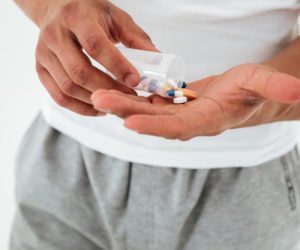The Growing Concern of Athletes Addicted to Painkillers

Opioid Crisis: Athletes Addicted to Painkillers
With the growing cases of opioid addiction across America, even athletes are at danger of abusing opioids. In 2015, 2 million Americans were addicted to opioid painkillers such as codeine, fentanyl and oxycodone, according to the American Society of Addiction Medicine. The increase in the number of athletes addicted to painkillers has sparked awareness campaigns such the one done by the Partnership for Drug Free New Jersey. They have compiled athletes’ drug addiction facts that show that athletes are twice as likely to become an opioid addict as a non-athlete is.
In this article, we will look at the dangers of opioid addiction and how it is affecting the athlete population.
What is an Opioid and is it Addictive?
Opioids refer to synthetically made drugs that are mainly used for the treatment of severe pain, such as from an injury or surgery. The substance alters the reward centers of the brain, blocking the sensation of pain while flooding the person’s brain with “feel good” chemicals, including serotonin and dopamine.
The abuse of opioids pain relievers, much like heroin (an opiate), can lead to a physical and mental addiction. The user’s brain changes due to the presence of the substance. The brain tries to counteract the rapid increase of serotonin and dopamine levels by reducing its own production of the chemicals. Eventually, the individual is unable to feel normal or cope without using an opioid to increase their depleted dopamine and serotonin levels. Stopping use at this point will also result in withdrawal symptoms including severe cravings.
Why are Athletes at Risk of Opioid Abuse?
The standard practice for young and old athletes alike is to treat an injury with the use of opioids. Since there is little to no education on the risks of painkillers in sports, the risk of abuse is higher, especially in the high-school athlete population.
A common situation among athletes is they have an injury while playing but want to continue playing. By giving the person an opioid pain reliever, they are able to ignore the pain and play in their sport. Initially, the person just takes the mediation to be able to perform, but as the addiction forms, they continue to abuse the opioid for the high they get. In younger athletes, brain chemistry changes can occur in as little as a week. Athletes addicted to painkillers may find it hard to stop and usually require professional help for their addiction.
What Happens Once an Addiction Forms?
Once an athlete begins to abuse opioids, it’s not long before they become dependent on it. An addiction to opioids can have an impact on several areas of a person’s life. Athletes addicted to painkillers may have begun taking the medication to allow them to perform, but even their motivation and performance will be negatively affected by the substance abuse.
Withdrawal symptoms include muscle aches, anxiety, insomnia, diarrhea, abdominal cramps and vomiting among others. The severe cravings experienced during withdrawal make it difficult to quit alone. Rehab centers such as White Sands Tampa can help athletes addicted to painkillers through the withdrawal phase and to break the mental patterns of addiction. Athletes’ drug addiction treated in the same way as other addictions are, employing many of the same behavioral therapy and alternative treatment methods that other drug users need.
The use of painkillers in sports requires close monitoring, especially in younger athletes. Addiction education and a change in the medications commonly used in sports is a start to resolving the issue, but many people still need help to beat their addiction. Find professional help for yourself or someone you love by calling White Sands Tampa on (877) 640-7820 today.
If you or a loved one needs help with abuse and/or treatment, please call the WhiteSands Treatment at (877) 855-3470. Our addiction specialists can assess your recovery needs and help you get the addiction treatment that provides the best chance for your long-term recovery.
